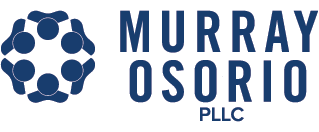It has long been a part of our immigration system to review each applicant’s likelihood to become a public charge, and to deny those who are found to be likely to rely on government assistance. For family-based cases and some nonimmigrant visas, Affidavits of Support, through Forms I-864 and I-134, are used to ensure that the petitioner or a joint sponsor has the income required to reasonably support the applicant. These forms are a contract with the government that allow the government to request repayment from the sponsor of any public benefits improperly received by the foreign national. Of course, most immigrants are barred from receiving many social programs, including Supplemental Security Income, Temporary Assistance for Needy Families (TANF), and many state and local income-based cash assistance programs. Therefore, the government already has a way to recuperate taxpayer losses from improper benefits given, though it is not likely an immigrant would receive such benefits.
However in 2019, the Trump Administration through the Department of Homeland Security, greatly expanded what criteria are considered, now requiring evidence of health insurance, credit history, education and certifications, ability to speak English, assets, debts, and more. To review these factors, the cumbersome Form I-944 was created. There have been numerous lawsuits filed against this policy, and it is widely seen by practitioners as a wealth test, punishing those typically from countries with less access to resources, such as those who did not attend institutes of higher education, or who have larger families. We have been waiting to see what the Biden administration would do with this policy.
Update as of March 9, 2021
Today, the Department of Justice has announced they will no longer defend the government on lawsuits against this policy by filing a joint stipulation to dismiss the current lawsuit before the Supreme Court. The Supreme Court then dismissed the case today. This means the government is not fighting against an injunction that stopped the implementation of the public charge policy.
It is possible that the lower court’s injunction could go back into effect – meaning it would no longer be required to file an I-944 and all of the supporting evidence with applications. To formally remove the policy, the government must publish their intentions and go through normal administrative procedures. While we still have to wait and see exactly what will happen with the policy, it is clear that we will be returning to the long-existing standard instead of this unnecessarily heightened one.
